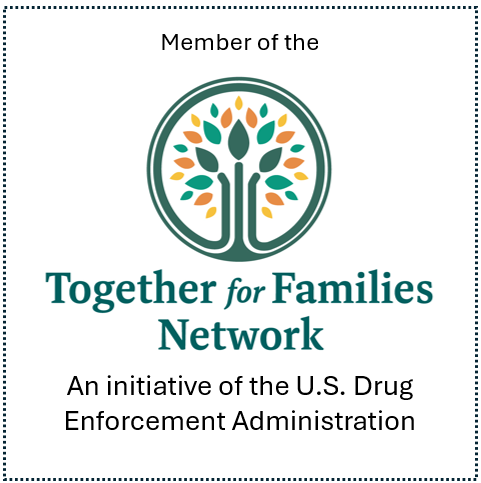Autism and the Human Experience
Ask the Experts | Brian Kaminski
Sometimes breakthroughs come where we least expect them – at times during our weakest moments.
A recent perspective shift for me came moments after a “parental tipping point” – those moments only other fellow parents can fully understand – exhausted, defeated, and ashamed after losing my cool amid a house full of toddlers (four to be exact). I don’t know whose tantrum was more impressive this day – theirs or mine. Sadly, I must admit, I believe it was the latter. As I chastised myself, I couldn’t help but think, “These moments never happen to me within my clinical practice, why should it be any different with my own children?” I think it’s a shared human experience that we are usually at our most flawed around the ones we love most deeply.
As I was reflecting on my behavior this day, I paused to identify the common thread of what led me to “snap” in this particular moment in hopes of not making the same mistake again. The more I reflected on my behavior, I identified that these moments shared either one of two traits. They occurred when either:
- I was viscerally at sensory overload. I’m talking “four simultaneous crying and clamoring children, TV blasting full Mickey Mouse Clubhouse, Alexa pumping “Frosty the Snowman” on repeat (it’s April), all while the kitchen timer is going off, and I’m pretty sure something is smoking” kind of sensory overload. The type of overload which causes your brain to cry out, “Make. It. Stop!” – hence the tipping point.
- I was talking repeatedly to a child (or children) with priorities entirely at odds with my own.You can call it developmentally appropriate boundary testing, “selective hearing,” or perhaps sheer toddler-ism. By all accounts, however, you can call it utterly and completely trying, stretching, and downright humbling.
Most days and most moments I have the patience for it – all of it. Some moments, however, I must honestly say that I don’t – and those are the moments which sting the most and stay with me the longest.
But these two facts alone were not my breakthrough. It was the realization that my own personal “challenging behaviors” were caused by: a) sensory sensitivities and b) communication barriers. Does this sound familiar to anyone?
Practicing Empathy and Understanding When Faced with Challenges
Difficulties with sensory stimulation and barriers communicating are classically defined criteria of Autism Spectrum Disorder. And as the term spectrum signifies, these sensitivities and challenges exist along a continuum of differing magnitudes and characteristics. Yet, the autistic lived experience exists along a continuum that we all exist upon – the varying ways we perceive and experience the world around us in a term now known as “neurodiversity.” These differences, however great, are still firmly rooted in a shared sameness:
Shared equalness.
Shared worthiness.
How can you not be moved with empathy and understanding instead of judgement when faced with these challenges?
Now let’s look at the role of empathy and understanding while making room for grace in our communication with others in transforming these experiences.
Rebuild and Repair
I tell families often that being a behavior analyst does not make me a perfect parent – I am of course still human. But it does give me insight when I fall short of how to repair and rebuild – to resolve to learn from my mistakes and do better the next time, with every day serving as a new opportunity. That at its core, is the central tenant of any effective therapy, and as this relates to Autism Spectrum Disorder, principally among those therapies are Applied Behavior Analysis (ABA), Speech Language Pathology (SLP), and Occupational Therapy (OT). These services exist to enable individuals to develop the skill sets necessary to navigate and interact more fully in the world around them – skills which serve to benefit us all.
Practicing Self-Compassion
In reflecting upon my own behavior and my firm resolve to do better, I have also come to know that perfectionism – the rigid inability to accept mistakes – is an elusive and even destructive force. I become “upset with being upset”. I get “stuck” in the moment, rather than moving through it. I have come to learn to apply a technique which I impart to both my children and families in practice, as well as the teams that I lead – self-compassion. When (not if) I fall short, I stop, own it, apologize, and ask for forgiveness. And then, the most challenging part, I must forgive myself.
On this particular day, my apology to my children was, “Kids, Daddy is very sorry for losing his temper. I was feeling overwhelmed. Will you please forgive me?” I have found by modeling humility and ownership, we can teach others to do the same. There is something powerful and transformative about admitting fault – sometimes in the most moving and unexpected ways.
I saw this on display weeks later with my 4-year-old daughter Nora, when she found herself similarly “stuck” in a difficult feeling. When the moment passed, my little girl turned to me and said, “Daddy, I’m sorry for yelling at you. I was feeling overwhelmed.” Awestruck and searching for words, I replied, “That’s okay, sweetheart. I know what that feels like, and I’m here for you.”
Brian Kaminski, MA, BCBA, is Vice President of Clinical Services at Lumen Pediatric Therapy. For more information, please visit: lumenkids.com.






